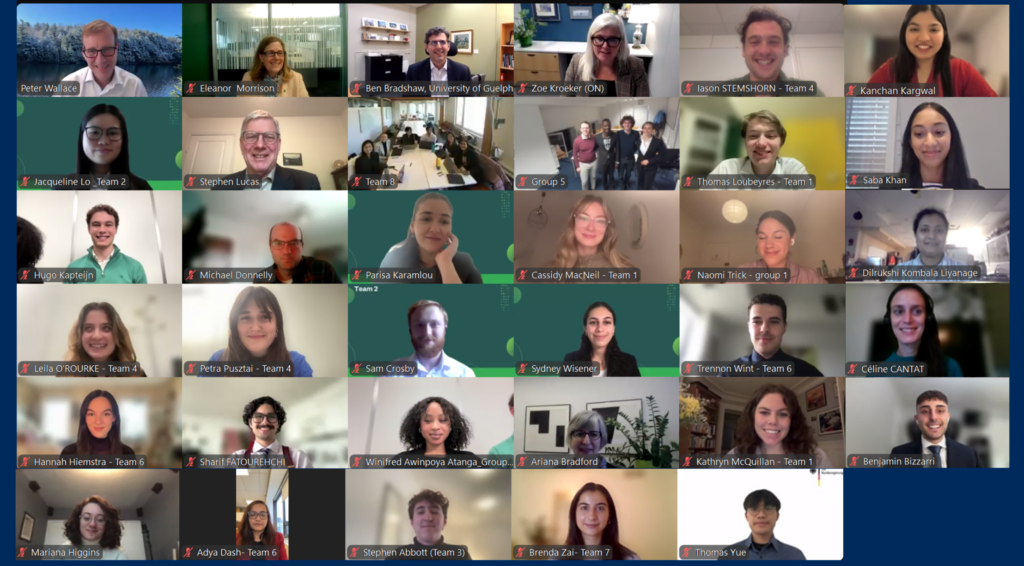On November 15th, the CARE program hosted its inaugural case competition, challenging eight graduate student teams to propose innovative solutions to combat climate change. The event brought together students, faculty, and industry leaders for a day of collaboration, creativity, and critical thinking.
The Climate Adaptation, Resilience, and Empowerment (CARE) Program unites researchers and future climate leaders from the University of Toronto, University of British Columbia, Sciences Po Paris, and the University of Guelph. Through hands-on experiences like the case competition, CARE aims to inspire the next generation of environmental innovators to develop actionable climate solutions.
This year’s competition tasked students with developing a realistic policy plan to reimagine Germany’s energy production system, prioritizing sustainable “green” energy while addressing the socioeconomic impacts on everyday citizens. Teams had just 20 minutes to present their proposals to a panel of expert judges, who evaluated each plan based on feasibility, innovation, and potential impact.

CARE Case Competition 2024 Participants and Judges.
Trennon Wint, Hannah Hiemstra, Adya Dash, Dilrukshi Kombala Liyanage, Brenda Zai and Saba Khan represented the University of Guelph. Both University of Guelph teams showcased diverse strategies, including a reimagined carbon-tax scheme, incentive programs to transform agricultural waste into biofuels, and educational initiatives to equip citizens with skills for a green energy transition.
One standout proposal from the SciencePo Paris team introduced a multilayered approach to draw a workforce capable of creating green energy infrastructure by readjusting immigration requirements for those skilled in the energy or green sectors, and offering incentives for unemployed citizens to get trained in energy-sector related jobs.
Dr. Ben Bradshaw, Assistant Vice-President (Graduate Studies) at the University of Guelph, and judge for the case competition, praised the participants’ ingenuity and collaborative spirit.
“Bringing people together from different spaces and disciplines – like with this case competition – allows for nuanced, encompassing exchange of ideas and can lead to new ways of tackling climate solutions” he remarked, highlighting the importance of interdisciplinary efforts in addressing climate challenges.
The competition served as a testament to the transformative power of youth-led innovation in tackling global environmental issues. “These students are not just imagining a better future—they’re actively designing it,” says Bradshaw.
As CARE continues to foster creativity and resilience in the face of climate change, events like this inspire hope for a sustainable, collaborative future. For more information about the CARE program, University of Guelph’s involvement, and its initiatives, click here.